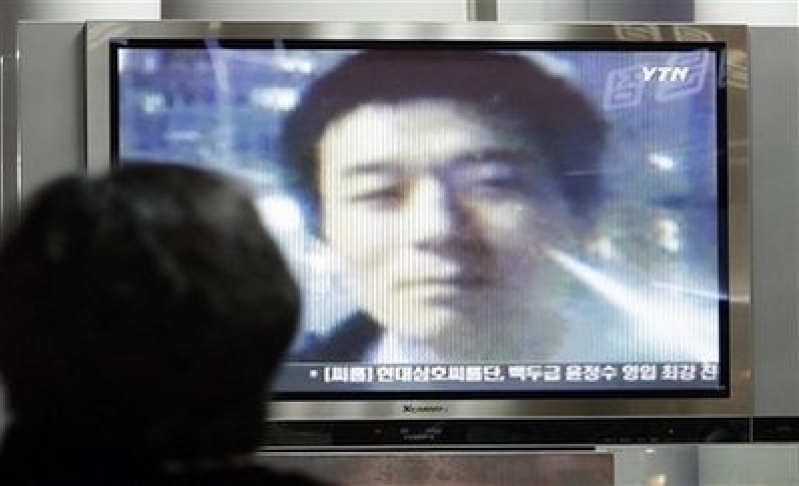
A Korean-American Christian activist has crossed over to North Korea from China to urge the country’s leader, Kim Jong-Il, to repent and release prisoners, according to a group associated with the activist.
Robert Park, a 28-year-old U.S. citizen from Tucson, Ariz., crossed the Tumen River and entered North Korea without permission around 5 p.m. on Christmas Day, Dec. 25. Fellow activists, who said Saturday they will soon release footage of Park crossing over to North Korea, said he prayed before crossing the Tumen.
Park also reportedly shouted in Korean as he crossed the frozen river, “I am an American citizen,” according to Jo Sung-Rae, head of the Seoul-based civic group Pax Koreana, to The New York Times. “I am coming here to deliver God’s love. God loves you.”
Activists that witnessed the crossing said it was silent by the time Park reached the North Korean side and they assumed that he has been arrested. Park’s family in San Diego and the U.S. State Department also assumed that the Christian activist has been arrested, with the State Department saying that it is working to ensure Park’s safety.
Fellow activists said Park shared that he received a vision from God of North Korea’s liberation and believed God wanted him to help expose the human rights abuse in the communist state.
Park carried a letter addressed to Kim Jong-Il when he entered the country that read: “I proclaim Christ’s love and forgiveness towards you today. God promises mercy and clemency for those who repent,” according to a copy made public Saturday on the Pax Koreana web site.
“He loves you and wants to save you and all of North Korea today.”
The letter urged Kim to close all “concentration camps,” release political prisoners and allow humanitarian groups into the country to deliver food and medicine.
Prior to his bold entry into the reclusive country, Park had served as a missionary ministering to the homeless in Mexico. He later worked in China near the North Korea-China border providing humanitarian assistance as well as spiritual guidance to North Korean refugees. He later stopped working in China for fear that if the Chinese government discovered the refugees then they would be repatriated to North Korea, where they face severe punishment for leaving the country – an illegal act.
After working in China, Park moved to South Korea to work on advocating for improved human rights in North Korea.
Park’s father, Pyong Park, said his son wanted quicker change to North Korea’s humanitarian situation than diplomacy was providing, according to The Associated Press. Jo of Pax Koreana said Park was ready to be a “martyr” when he illegally entered North Korea.
Jo’s statement is supported by a recent interview Park did with Reuters. In the interview, the Christian activist said he does not want President Obama to “come and pay to get me out.”
“But I want the North Korean people to be free…The concentration camps to be liberated,” he said. “Until then I do not want to come out. If I have to die with them, I will.”
Pyong Park also said his son was not afraid to die but was more concerned about getting the “whole world to know of North Korea’s situation.”
Park’s parents said they last heard from their youngest son on Dec. 23 when he wrote in an e-mail: “Know that I am the happiest in all my life. Incredible miracles are happening in the liberation of North Koreans right now…We are going to see a big and beautiful change in Korea and in the world this year!”
Following news of Park’s illegal entry into North Korea, several human rights groups expressed uncertainty over what to do next.
Tim Peters, a prominent Christian activist who heads Helping Hands Korea, said he does not know whether he should attend the prayer and demonstration rallies for Park that taking place around the world.
“It’s a bit of quandary, really,” Peters told Voice of America. “It would lend the impression that our organization or myself, personally, was somehow endorsing this action that Robert decided upon himself. I find that quite troubling.”
Peters said his first impression of Park was that he was “deeply passionate,” but then recently he began to distance himself from the American-Korean activist when he found him to be “more remote” and that Park’s “behavior was becoming eccentric.”
But U.K.-based Christian Solidarity Worldwide, which said it has known Park for several years, has responded to the news by calling on the international community to appeal for Park’s release and use the opportunity to increase political and diplomatic pressure on North Korea to improve its human rights situation.
“We also urge the international community, including the United States, to ensure that human rights concerns feature in every dialogue with the North Koreans, alongside security issues,” said Mervyn Thomas, CSW’s chief executive, in a statement Monday. “We urge Christians around the world to pray for Robert Park and for North Korea, and that his brave act on Christmas Day might not have been in vain.”
Park’s crossing into North Korea occurred just months after two American journalists, Laura Ling and Euna Lee, were released by North Korea following their capture. The two journalists were working on a human trafficking story about North Korean refugees in China when they were arrested for illegal entry.
While the United States and human rights groups have released statements about Robert Park’s situation, North Korea has so far remained silent on the issue; Pyongyang has neither confirmed nor denied Park’s presence in the country or whether if he was arrested.
There are about 160,000 political prisoners in prison camps across North Korea, according to South Korean and American government estimates based on testimonies from former prisoners. Among the political prisoners are an estimated 40,000 to 60,000 Christians, according to Open Doors USA. It is illegal to be a Christian in North Korea.







